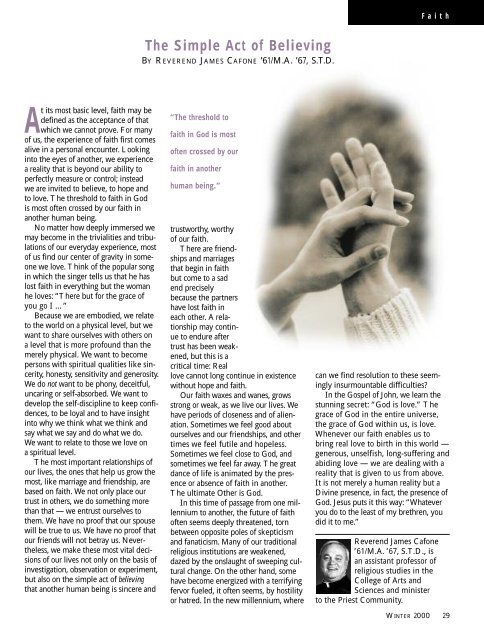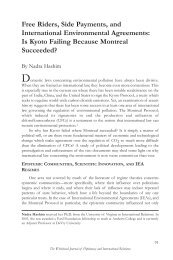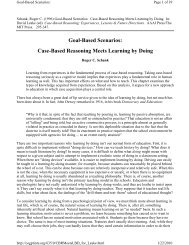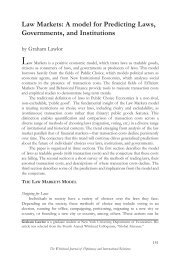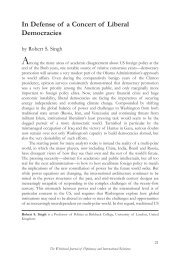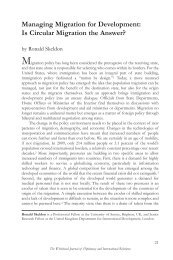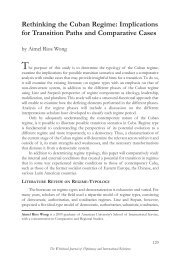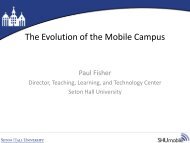Seton Hall Magazine, Winter 2000 - Seton Hall University
Seton Hall Magazine, Winter 2000 - Seton Hall University
Seton Hall Magazine, Winter 2000 - Seton Hall University
You also want an ePaper? Increase the reach of your titles
YUMPU automatically turns print PDFs into web optimized ePapers that Google loves.
At its most basic level, faith may be<br />
defined as the acceptance of that<br />
which we cannot prove. For many<br />
of us, the experience of faith first comes<br />
alive in a personal encounter. Looking<br />
into the eyes of another, we experience<br />
a reality that is beyond our ability to<br />
perfectly measure or control; instead<br />
we are invited to believe, to hope and<br />
to love. The threshold to faith in God<br />
is most often crossed by our faith in<br />
another human being.<br />
No matter how deeply immersed we<br />
may become in the trivialities and tribulations<br />
of our everyday experience, most<br />
of us find our center of gravity in someone<br />
we love. Think of the popular song<br />
in which the singer tells us that he has<br />
lost faith in everything but the woman<br />
he loves: “There but for the grace of<br />
you go I …”<br />
Because we are embodied, we relate<br />
to the world on a physical level, but we<br />
want to share ourselves with others on<br />
a level that is more profound than the<br />
merely physical. We want to become<br />
persons with spiritual qualities like sincerity,<br />
honesty, sensitivity and generosity.<br />
We do not want to be phony, deceitful,<br />
uncaring or self-absorbed. We want to<br />
develop the self-discipline to keep confidences,<br />
to be loyal and to have insight<br />
into why we think what we think and<br />
say what we say and do what we do.<br />
We want to relate to those we love on<br />
a spiritual level.<br />
The most important relationships of<br />
our lives, the ones that help us grow the<br />
most, like marriage and friendship, are<br />
based on faith. We not only place our<br />
trust in others, we do something more<br />
than that — we entrust ourselves to<br />
them. We have no proof that our spouse<br />
will be true to us. We have no proof that<br />
our friends will not betray us. Nevertheless,<br />
we make these most vital decisions<br />
of our lives not only on the basis of<br />
investigation, observation or experiment,<br />
but also on the simple act of believing<br />
that another human being is sincere and<br />
The Simple Act of Believing<br />
BY REVEREND JAMES CAFONE ’61/M.A. ’67, S.T.D.<br />
“The threshold to<br />
faith in God is most<br />
often crossed by our<br />
faith in another<br />
human being.”<br />
trustworthy, worthy<br />
of our faith.<br />
There are friendships<br />
and marriages<br />
that begin in faith<br />
but come to a sad<br />
end precisely<br />
because the partners<br />
have lost faith in<br />
each other. A relationship<br />
may continue<br />
to endure after<br />
trust has been weakened,<br />
but this is a<br />
critical time: Real<br />
love cannot long continue in existence<br />
without hope and faith.<br />
Our faith waxes and wanes, grows<br />
strong or weak, as we live our lives. We<br />
have periods of closeness and of alienation.<br />
Sometimes we feel good about<br />
ourselves and our friendships, and other<br />
times we feel futile and hopeless.<br />
Sometimes we feel close to God, and<br />
sometimes we feel far away. The great<br />
dance of life is animated by the presence<br />
or absence of faith in another.<br />
The ultimate Other is God.<br />
In this time of passage from one millennium<br />
to another, the future of faith<br />
often seems deeply threatened, torn<br />
between opposite poles of skepticism<br />
and fanaticism. Many of our traditional<br />
religious institutions are weakened,<br />
dazed by the onslaught of sweeping cultural<br />
change. On the other hand, some<br />
have become energized with a terrifying<br />
fervor fueled, it often seems, by hostility<br />
or hatred. In the new millennium, where<br />
F a i t h<br />
can we find resolution to these seemingly<br />
insurmountable difficulties?<br />
In the Gospel of John, we learn the<br />
stunning secret: “God is love.” The<br />
grace of God in the entire universe,<br />
the grace of God within us, is love.<br />
Whenever our faith enables us to<br />
bring real love to birth in this world —<br />
generous, unselfish, long-suffering and<br />
abiding love — we are dealing with a<br />
reality that is given to us from above.<br />
It is not merely a human reality but a<br />
Divine presence, in fact, the presence of<br />
God. Jesus puts it this way: “Whatever<br />
you do to the least of my brethren, you<br />
did it to me.”<br />
Reverend James Cafone<br />
’61/M.A. ’67, S.T.D., is<br />
an assistant professor of<br />
religious studies in the<br />
College of Arts and<br />
Sciences and minister<br />
to the Priest Community.<br />
WINTER <strong>2000</strong> 29


